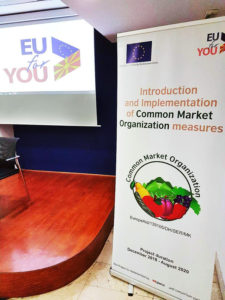
Implementation of the Priority Actions in Climate Change Sector
The Project’s overall objective is to achieve alignment of the North Macedonia’s legislation with the EU climate action legislation, and creation of an enabling environment for the successful implementation of the priority mitigation actions developed under the Long-term Strategy on Climate Action. The project’s specific objective is to

Supporting the Implementation of the Regional Waste Management Systems
The project aims are to support the North Macedonia in establishment of the regional waste management structure in the East and North-East Regions. To achieve its aims, the Project will be implemented through the following main activities: • Development and implementation of Regional Waste Management Public Awareness Program

Increasing Attractiveness, Inclusiveness and Relevance of VET and Adult Education
The overall objective is to improve skill matches of youth and adults in line with labour market needs by increasing access to quality vocational education, training and adult education. The project supports the Ministry of Education and Science of the Republic of Nort Macedonia and related national educational

Technical Assistance for Garment Training and Entrepreneurship Initiative (GATE for Women)
Women’s inequality in the labour sector has been an unsolved problem for generations. However, if women find the right support at the right time, it provides excellent results. Likewise, the overall aim of this project was to increase women’s employability and support women’s entrepreneurship by strengthening women’s vocational

Implementation of Common Market Organisations (CMO) in the Former Yugoslav Republic of Macedonia
The project’s overall objective is to increase marketing opportunities, economic development and overall productivity in the agricultural sector of North Macedonia while improving competitiveness of the agriculture sector in the country in line with EU accession requirements.

Strengthening Vocational Qualifications Authority (VQA) and National Qualifications System (NQS) in Turkey
It can be claimed that the labour markets are required to ensure the provision of formal and non-formal education and training, to support life-long learning, strengthening the relationship between education and employment, and facilitating harmonization with the European Qualifications Framework (EQF). Within this scope, the project aimed to

